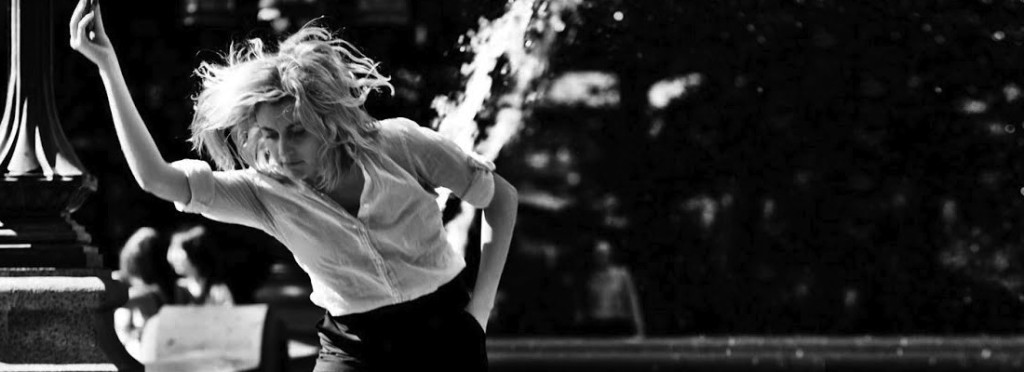The comparisons are too inevitable not to address promptly, so let’s just put it out there: in many respects, Frances Ha is basically Lena Dunham’s Girls compressed into a feature-length black & white narrative film. It tells the story of Frances (Greta Gerwig), a 27-year-old woman of modest means attempting to navigate post-college life in New York City. She is very much a textbook city twentysomething: professionally adrift, perennially between apartments, and very much in platonic love with her longtime best friend, Sophie (Mickey Sumner, daughter of Sting and Trudie Styler, whom you’ll next see playing Patti Smith in the CBGB movie).
We get the sense that Frances has been coasting in this manner for several years, and would be content to continue doing so if not for two unsettling developments—her mid-20s have now become her late-20s, and Sophie abruptly begins making overtures toward settling down. She gets a serious boyfriend. She is no longer available to spend every waking minute romping around town and having adventures. Without Sophie’s constant companionship, Frances is left alone with her predictably late-20s thoughts: what am I doing with my life? Should I be further along than I am? Who am I going to become? When will I be expected to become an adult? As Frances stammers in humiliation after taking a far-too-long ATM run to get cash while on a dinner date, “I’m sorry, I’m not a real person yet.”
So while the Girls analogies are obvious (admittedly, the film does invite the comparison by featuring Girls guys Adam Driver and Alex Karpovsky in supporting roles), Frances Ha is more than credible on its own merits. First of all, it is directed and co-written by the Oscar-nominated master social satirist Noah Baumbach (The Squid and the Whale, Margot at the Wedding, Greenberg). In addition to starring in the title role, Gerwig also co-wrote the film with Baumbach (she previously co-wrote several of the mumblecore films that first introduced her, including The Dish & the Spoon and Hannah Takes the Stairs). After first meeting when she co-starred opposite Ben Stiller in Greenberg, Gerwig and Baumbach (who has since divorced then-wife Jennifer Jason Leigh) became a couple during Frances Ha‘s production. The two were recently the focus of a dependably lengthy, in-depth New Yorker profile; it seems clear that the reason Frances Ha is Baumbach’s most romantic, least corrosive film is that he made it (in secret) while falling in love with its leading lady.
Gorgeously filmed in black and white, instantly earning further comparisons to Woody Allen’s Manhattan and rendering the film simultaneously modern and timeless, Frances Ha is uncomfortably hilarious and strikingly insightful in its sincerity. It gets so much right about the pathology of city dwellers in their late 20s (without relying on the accessibly episodic sitcom structure of Girls) that it will likely inspire cringing aplenty; as a 31-year-old, I found that I was still far too close to many of these behaviors to be entertained by them. But at a time when films seem so precariously close to being rendered redundant by the quality of television, Frances Ha and Girls stand side-by-side as object lessons in how each medium can excel at depicting similar stories in distinctly exemplary ways.
In the video above, I sit down with Gerwig and Baumbach during their visit to the San Francisco International Film Festival. We discuss passionate audience reactions to Frances Ha, coming of age, feeling prematurely mature, and the frightening responsibility of using an ATM for the first time. Baumbach alludes to his divorce from Leigh while discussing his relationship with his own press, and Gerwig makes a wonderfully bizarre recommendation for a preventative hangover cure (that part comes at the end, so stick around for it).
Frances Ha opens in San Francisco today.





